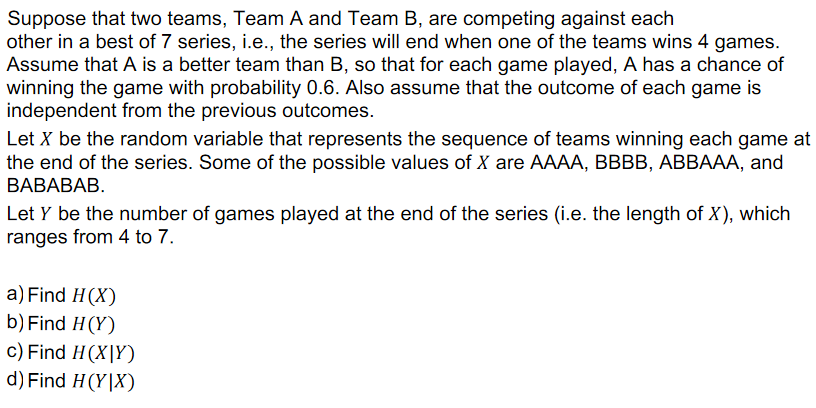Suppose that two teams, Team A and Team B, are competing against each other in a best of 7 series, i.e., the series will end when one of the teams wins 4 games. Assume that A is a better team than B, so that for each game played, A has a chance of winning the game with probability 0.6. Also assume that the outcome of each game is independent from the previous outcomes. Let X be the random variable that represents the sequence of teams winning each game at the end of the series. Some of the possible values of X are AAAA, BBBB, ABBAAA, and ВАВАВАВ. Let Y be the number of games played at the end of the series (i.e. the length of X), which ranges from 4 to 7. а) Find H(X) b) Find H(Y) c) Find H(X|Y) d) Find H(Y|X)
Unitary Method
The word “unitary” comes from the word “unit”, which means a single and complete entity. In this method, we find the value of a unit product from the given number of products, and then we solve for the other number of products.
Speed, Time, and Distance
Imagine you and 3 of your friends are planning to go to the playground at 6 in the evening. Your house is one mile away from the playground and one of your friends named Jim must start at 5 pm to reach the playground by walk. The other two friends are 3 miles away.
Profit and Loss
The amount earned or lost on the sale of one or more items is referred to as the profit or loss on that item.
Units and Measurements
Measurements and comparisons are the foundation of science and engineering. We, therefore, need rules that tell us how things are measured and compared. For these measurements and comparisons, we perform certain experiments, and we will need the experiments to set up the devices.

Trending now
This is a popular solution!
Step by step
Solved in 4 steps







